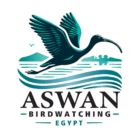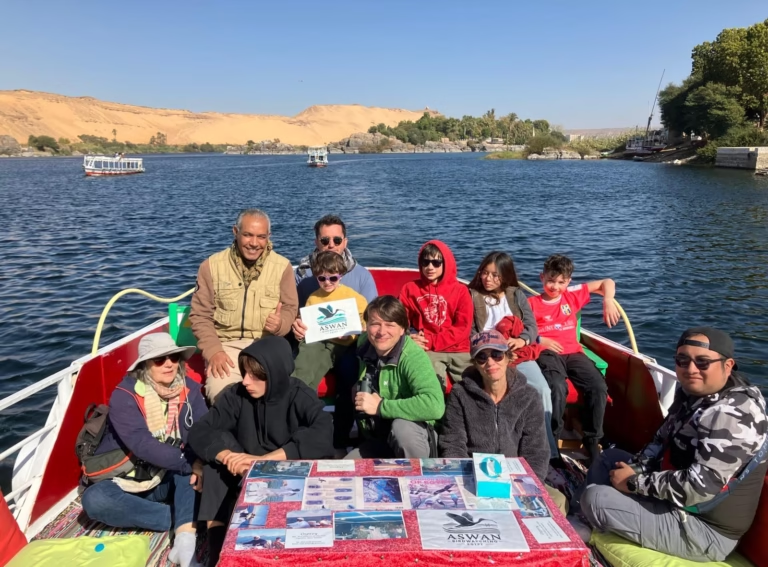Aswan is a place of breathtaking natural beauty and one of Egypt’s richest bird habitats. For birdwatchers, it’s a paradise. But this paradise is under threat. Bird hunting has catastrophic circumstances in the quiet southern city.
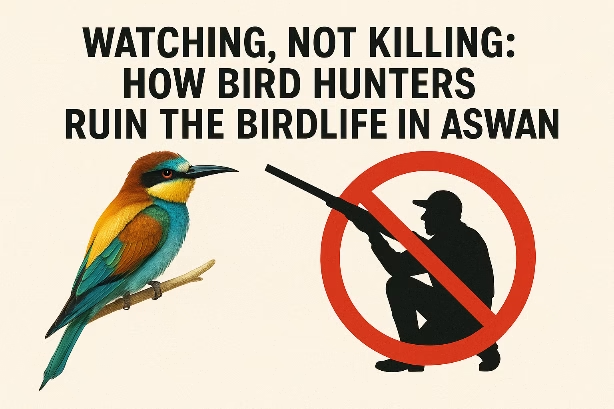
A 15-month investigation has exposed a disturbing truth: European trophy hunters — especially from Malta — are traveling to Egypt to shoot endangered migratory birds, sidestepping the very conservation laws they must follow at home.
While eco-tourism in Aswan grows and locals work to protect their natural heritage, foreign bird hunters are turning the same landscapes into killing fields.
The Poaching Pipeline from Europe to Egypt
Across Europe, millions of euros are poured into conserving birds like the Egyptian Vulture, Osprey, Lanner Falcon, Northern Lapwing, and the European Turtle Dove. These species are legally protected under EU conservation frameworks.
Yet some EU citizens exploit Egypt’s weaker protections by legally or semi-legally hunting these very birds during their migrations.
In 2024, Egypt even expanded its hunting zones to include new areas like the New Valley and Sohag, making it easier for foreign hunters to operate under the cover of “sport tourism.”
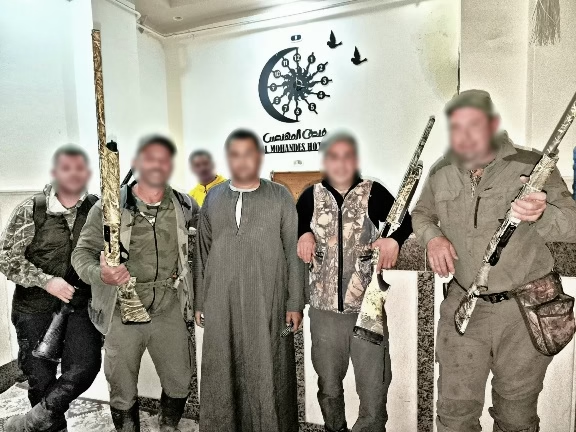
From Aswan to Faiyum — A Migratory Death Route
The hunting routes stretch across Egypt — from Lake Nasser and Aswan to the wetlands of Faiyum and even the Nile Delta.
Local birdwatcher Hashim Morsi recalled finding 7,000 dead birds along just 15 kilometers near Port Said in 2017 — many of them bagged and labeled for foreign export, some with Maltese tags.
Guides say Maltese hunters show special interest in eye-catching species like flamingos, spoonbills, and glossy ibises. Shockingly, some are reported to kill stray dogs just to “pass time.”
This is not hunting for food. It’s destruction for pleasure.
Killing for Status, Not Survival
The birds killed in Egypt don’t just disappear into the desert. Many are smuggled back to Europe, where they are taxidermied and displayed as trophies in private collections and living rooms.
Social media posts from some of these hunters show rows of dead birds posed for the camera — boasting about what they’ve killed, not what they’ve seen.
Meanwhile, Egypt’s birdwatching and nature tourism sectors — which depend on preserving live bird populations — are left to suffer.
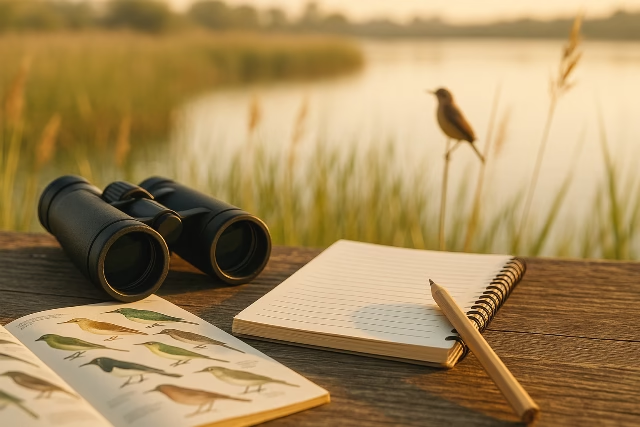
Time for a Shift: From Killing to Watching
Egypt has the potential to be a global leader in bird-based ecotourism, especially in bird-rich areas like Aswan, Lake Nasser, and the Nile Valley. Instead of promoting hunting, the country should:
Strengthen bird protection laws.
Crack down on foreign trophy hunters.
Expand support for sustainable birdwatching tourism, which generates income without killing.
Partner with international conservation networks for stricter oversight and accountability.
The future of Aswan’s birdlife should be one of binoculars, not bullets.
Want to Support Bird Conservation?
Join one of our Aswan Birdwatching Tours and experience the joy of seeing wild birds in their natural habitat — alive, free, and thriving.
Help us show that the true value of birds lies in watching, not killing in Aswan, Egypt – Where birds are protected, not hunted.
